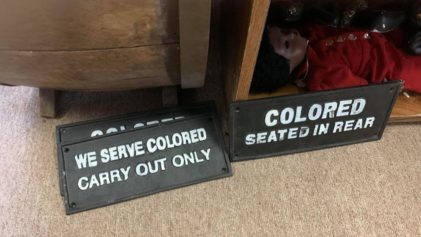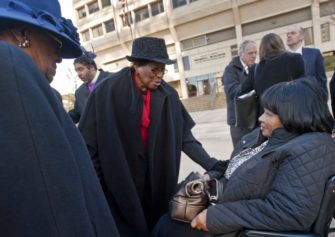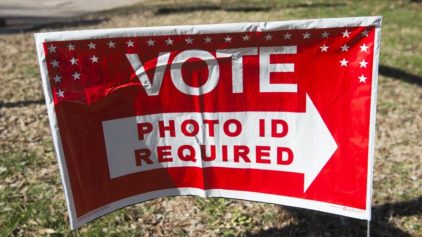
The centerpiece of the voting laws North Carolina Republicans passed in the state legislature in August, known as HB 589, is a voter identification law requiring voters to follow very restrictive ID guidelines, which experts say will make it difficult for older people, particularly African-Americans, without access to birth certificates or driver’s licenses to vote.
The North Carolina law also eliminates pre-registration, same-day registration and out-of-precinct ballots — all of which were used by African-Americans far more than whites and which prompted unprecedented increases in the number of Blacks voting. Black voter participation in North Carolina increased from 42 percent in 2000 to 69 percent in 2012, when Blacks voted overwhelmingly for then-presidential candidate Barack Obama. Obama carried North Carolina in 2008, but his Republican challenger Mitt Romney won the state in 2012.
The case is being argued by lawyers for the North Carolina branch of the NAACP and the civil rights group the Advancement Project. They are trying to get a federal judge to temporarily halt the new rules before the midterm election, in advance of a full trial next year. If the judge doesn’t act, they say tens of thousands of largely poor Black voters could find themselves turned away at the polls in November.
“This is the worst voter suppression law we have seen since the days of Jim Crow. It is a full-on assault on the voting rights of minorities,” the Rev. William Barber, president of the North Carolina state conference of the NAACP, told The Guardian.
The actions by North Carolina came just a month after the landmark Supreme Court ruling last June that removed one of the most powerful provisions in the 1965 Voting Rights Act, striking down the “pre-clearance requirement” that had required nine entire states (mostly in the South) and parts of six others, including North Carolina, to get approval from the federal government before they could make any changes to their voting laws.
While Republican sponsors of the legislation continue to argue that it is designed to avoid fraudulent voting and to reduce the cost of elections, opponents — including U.S. Attorney General Eric Holder — say those claims are ridiculous. They point to the success of freer voter registration laws in North Carolina, which went from a rank of 46th out of 50 states in 1992 in voter participation to 11th in 2012.
Rosanell Eaton, the lead plaintiff in this week’s legal challenge to HB 589, who was born in 1921 and remembers the old literacy test used to deny Black people the right to vote, expressed her concern with the new rules on the Rev. Al Sharpton’s show on MSNBC. The name on her birth certificate doesn’t match the name on her driver’s license.
“I can’t imagine that I have to go through the same thing I had to go through 75 years ago,” she said. “It is so horrible to think about going back where we came from.”
“This isn’t Republicanism, this is extremism. This is the model,” said Barber of the NAACP. “When you look at North Carolina, you are looking at what extremists want to do to suppress voting.”
In April, a federal judge in Wisconsin struck down a law passed by that state’s Republican legislators that would have made voting harder by requiring state-approved photo identification at polling places.


